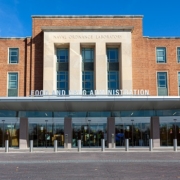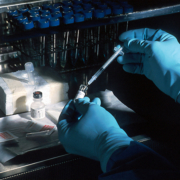Five keys to success in healthcare translations in case processing
Five keys to success in healthcare translations in case processing
By Updesh Dosanjh, IQVIA
Pharmacovigilance translations must be done carefully, as the accuracy of translated documents has a direct impact on information evaluation and patient health and well-being. However, with volumes of non-English source documents increasing, the speed at which these translations are completed is also crucial, as any delays in communication can lead to serious consequences, such as harm to patients, legal liability, and missed regulatory deadlines for adverse event reporting.
Pharmacovigilance (PV) teams are increasingly turning to translation automation as the industry deals with a growing volume of diverse data, more products and increasing regulatory and reporting requirements. With some organizations spending 50 percent of their budget for translation alone, automation is the only practical answer. So, what should these technologies offer that automate translation, to manage rising volumes, reduced timelines, and cost control.
The translation process is an integral part of every drug’s development and commercialization process. Poor translation can have a disproportionate effect on trial timelines, compared to its cost/benefit ratios, by causing issues like start-up delays in a trial. Translation companies need to deliver speed, accuracy, and security of information, but paying for those services can be a cost sink for safety teams —especially those of small and emerging biopharma companies. Using advanced artificial intelligence (AI) and neural machine translation (NMT) technology that are specifically designed to meet the requirements of the life science industry can help deliver multilingual content at a lower cost than current processes. To achieve successful healthcare translation, five business factors must be met:
- Fast delivery of translations. Manual translations usually require multiple days unless organizations are willing to pay for expedited turnaround times. In the upstream, this causes delays, affecting the speed of query request and the quality of responses. In the downstream, it increases the pressure on the timeframe to complete remaining stages, particularly when deadlines are short. Using an NMT process specifically developed for the pharmaceutical industry can allow turnaround of nearly accurate translations in hours instead of days while maintaining quality and cost control.
- Domain expertise and incorporation of medical data enable high-quality translations using accurate and relevant terminology. When translating medical documents, it is possible to miss or misunderstand critical information without high quality, informed translators. NMT engines designed specifically for handling life-science data, supported by highly qualified and fully vetted linguists and subject matter experts who ensure consistently culturally accurate translation.
- Streamline processes and improve efficiency. The efficiency of translation can be negatively impacted by multiple handoffs and outdated technology and processes. By using the latest translation technology, clients can streamline processes and design flexible, tailored solutions. Translation can be reduced to a one-step activity while also eliminating tracking requirements.
- Cyber protection and data security expertise. Traditional translation processes contain inherent threats for security: open systems, untested freelancers, and hand-offs that increase the risk of data breach or information leak. Partnering with a company that has a translation approach that is sensitive to securing personally identifiable information (PII) helps ensure a safe translation process and adherence to the multiple regulatory environments PV teams operate in.
- Transparency and improved cost-effectiveness. In order to keep costs predictable and avoid overspending, lifescience safety teams need transparent translation pricing. With NMT translation solutions, organizations will know the full cost of translation up front, and it will be offered typically at a lower cost than traditional processes, with no surprises in rush fees or extra project management fees.
Advancing the future of healthcare translations
Lifescience organizations are turning to AI for translation to overcome the time-consuming nature of traditional translation processes due to the overwhelming amount of data being collected and processed. Using an automated neural network to train, learn and apply statistical models for machine translation across multiple algorithms simultaneously, NMT solutions represent the state of the art in translation technology. This technology should continually assess closeness and human-parity, data should be peer benchmarked against multiple systems and segments of each language pair should be randomly selected for evaluation each quarter. To ensure the highest quality translation while continually learning, this assessment should include BLEU, FTM, TER, Meteor, and human assessment.
When these aspects are combined with the specificity of the life science knowledge for contextual understanding, pharmaceutical organizations experience higher quality translation for even the most complex data translation requests. In other words, the right NMT technology partner can provide instant help at multiple points during the case intake and processing steps, such as social media scanning, intake, case processing and data analysis.
It is essential to partner with the right NMT technology provider that is not only life science-specific, but also stands by the five healthcare translation essentials of speed, accuracy, efficiency, security, and cost to simplify the translation process and alleviate difficulties. With the rapid advancement of the industry we are seeing today, traditional translation processes and cost models will become obsolete.
 |
Updesh Dosanjh is a practice leader for the technology solutions business unit of IQVIA. In his role, Updesh is responsible developing the overarching strategy regarding AI and Machine Learning as it relates to safety and pharmacovigilance. He has over 25 years of knowledge and experience in the management, development, implementation, and operation of processes and systems within the life sciences and other industries. Most recently, Dosanjh was with Foresight and joined IQVIA as a result of an acquisition. Dosanjh holds a Bachelor’s degree in Materials Science from Manchester University and a Master’s degree in Advanced Manufacturing Systems and Technology from Liverpool University. |









